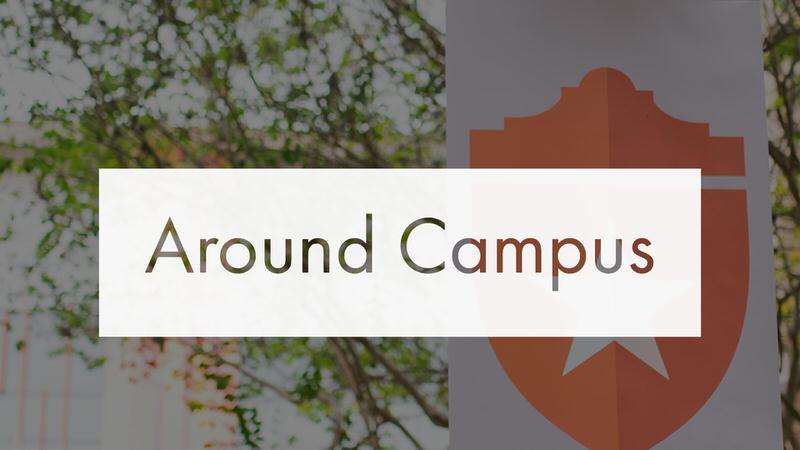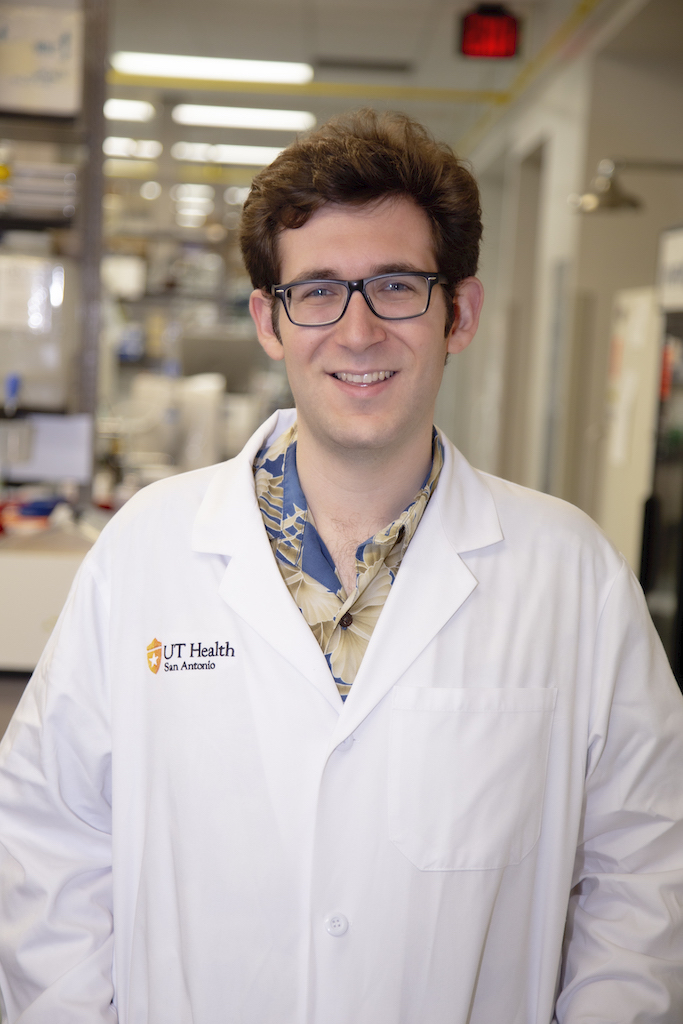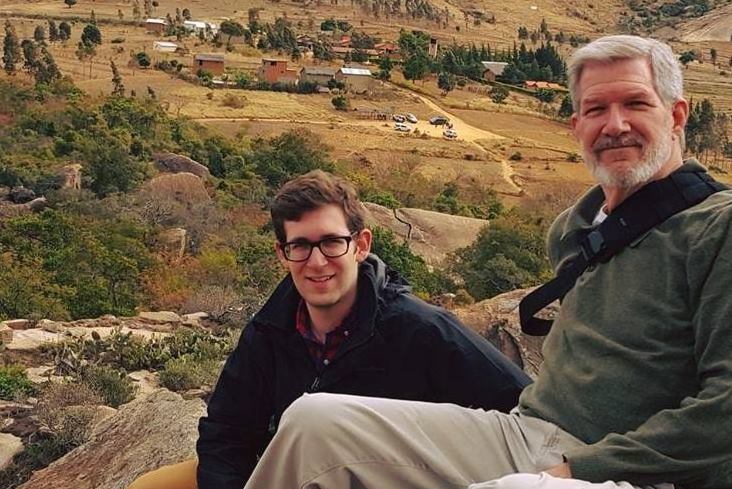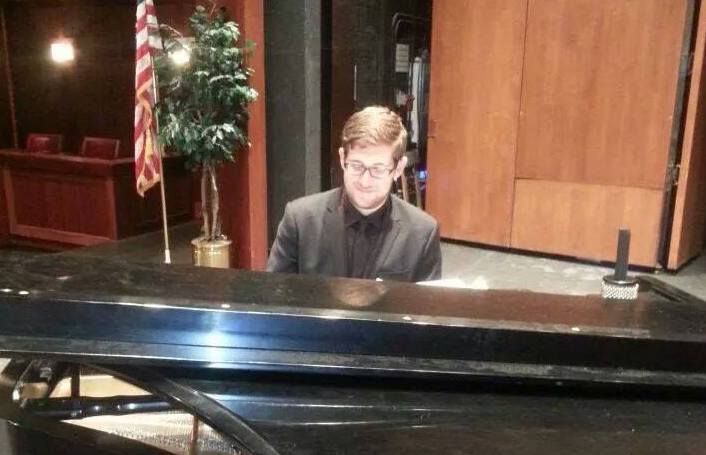Henry Miller Receives Greehey Graduate Fellowship in Children’s Health

 Henry Miller has just received the Greehey Graduate Fellowship Award in Children’s Health. Miller is a student in the Biology of Aging discipline of the Integrated Biomedical Sciences program in the lab of Dr. Alex Bishop.
Henry Miller has just received the Greehey Graduate Fellowship Award in Children’s Health. Miller is a student in the Biology of Aging discipline of the Integrated Biomedical Sciences program in the lab of Dr. Alex Bishop.
The Greehey Graduate Fellowship Award in Children’s Health was established by the Greehey family to support students who wish to pursue graduate scientific studies in children’s health sciences especially children’s cancer. This award helps to assist a student’s research by providing a doctoral student stipend for one full academic year plus payment for tuition and fees.
Miller’s research focuses on Ewing sarcoma, a pediatric bone cancer, which he explains is epigenetically controlled by the oncogene which drives it, EWSR1-FLI1.

Members of the Bishop Lab, (L to R) Aparna Gorthi Ph.D, Kevin Kanda, Henry Miller, Alexander J.R. Bishop DPhil, Nicklas Bassani PhD, Liesl Lawrence, Pramiti Mukhopadhyay.
“It is the selective turning on and off of genes which defines cellular identity, function, and, often, dysfunction. We call this the “epigenome,” he said. “Our lab recently found that levels of this gene can be altered in order to re-awaken epigenetic programs used during embryogenesis. Our findings suggest that these programs may promote invasion and drug resistance of the tumor.”
Miller explained that by better understanding the drivers of epigenetic changes in Ewing sarcoma, we will uncover novel drug targets that can be used to prevent the invasive response of these tumors to chemotherapy and improve patient survival.
“I use molecular techniques and computational approaches to understand the epigenetic changes which occur in Ewing sarcoma tumors and identify novel vulnerabilities,” he said.

Miller’s interest in cancer research is personal. His cousin Alex was diagnosed with Leukemia a few years ago. After a year of treatment, his cousin is now studying mathematics at UC Santa Cruz without any trace of cancer– yet, the experience was harrowing, for himself and his family.
“I was inspired by his resilience in the face of that disease. However, I am also motivated by the knowledge of how chemotherapy treatment so early in life will negatively impact his future health and the fact that, for many patients, chemo resistant relapse is a very real possibility,” he said. “While I am fascinated by epigenetics and cellular systems in cancer, I am much more invested in the idea that we can use our knowledge of these systems to find new drugs that enable more effective cancer treatments that are less reliant upon chemotherapy.”
In addition to his research, he is also a co-founder of the Bioinformatics Interest Group, a student organization which promotes bioinformatics training on campus through workshops, professional opportunities, and community engagement.

He also likes to hike and play jazz piano in his spare time.
Miller’s long-term goal is to become an independent researcher, using both computational and molecular biology to shed light on new solutions to problems in cancer treatment.
“The Greehey Graduate Fellowship Award is an incredible honor and I’m deeply humbled to have been selected,” he said. “I want to thank the Greehey Family for their generous support. This fellowship will not only enable me to focus all my attention on my research in Ewing sarcoma, but will unburden my laboratory from the need to provide me funding for the coming year, enabling them to do more in the fight against cancer.”
